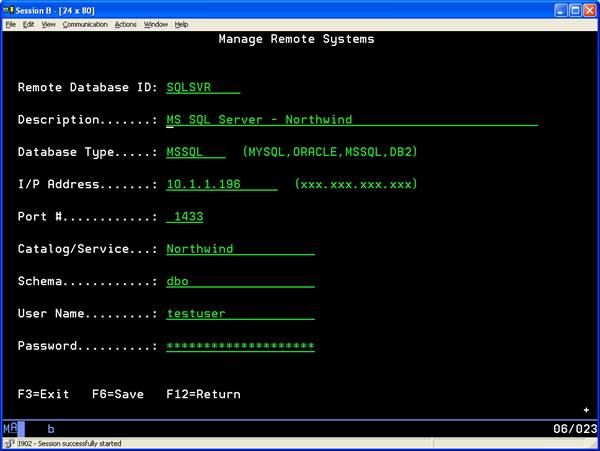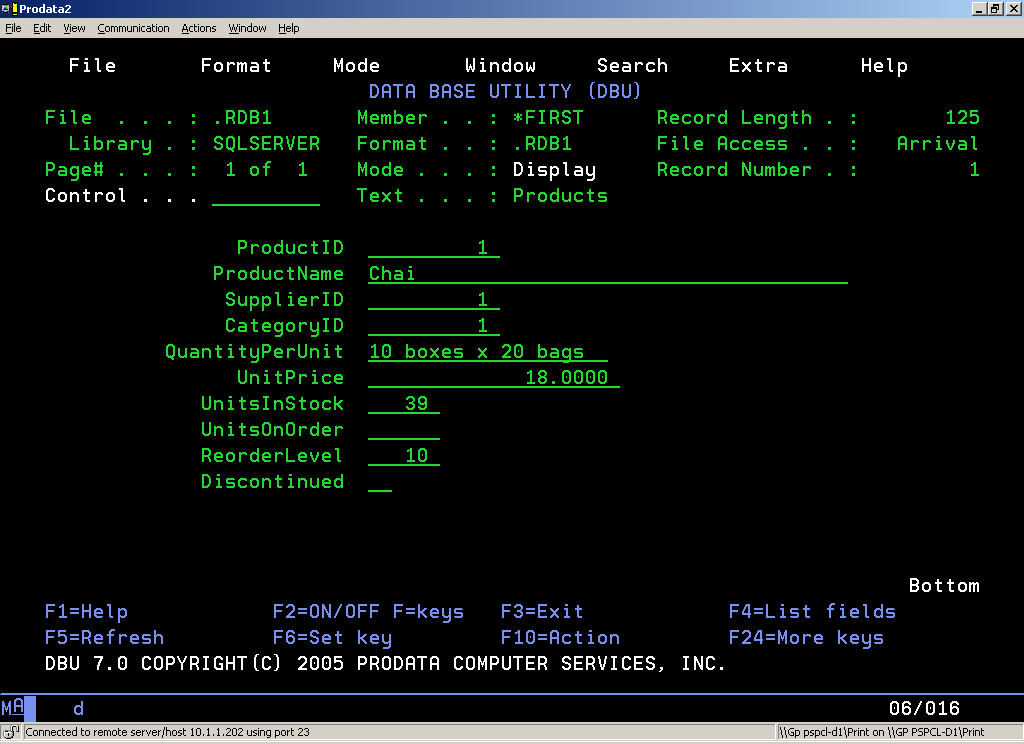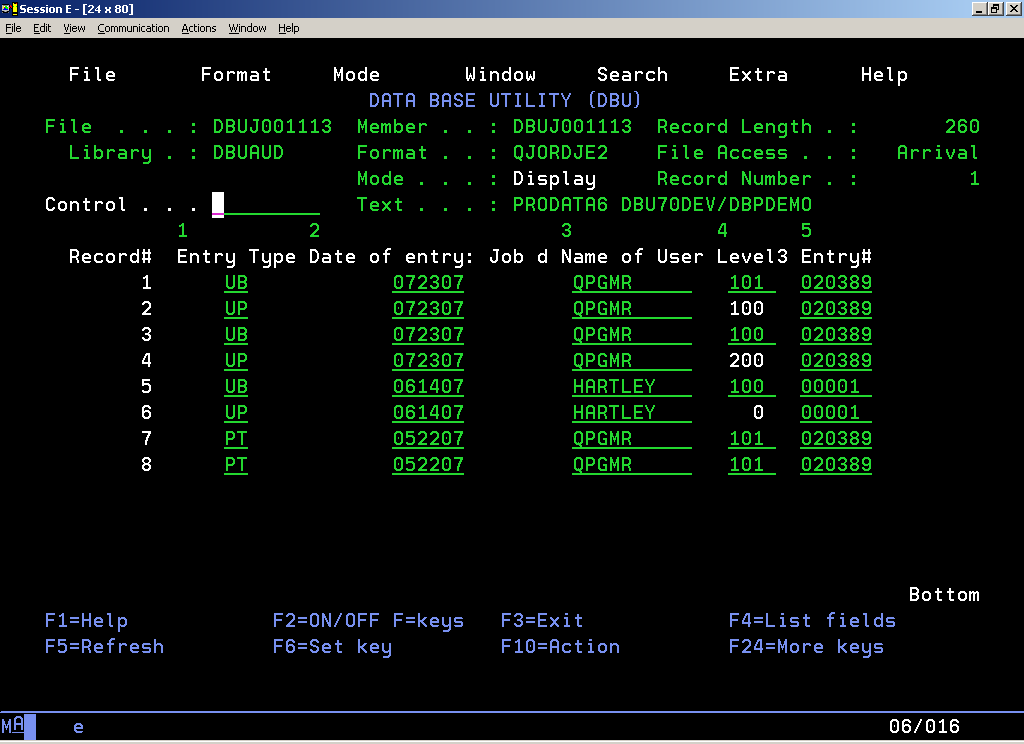For those familiar with DBU, the answer is to access the remote data using the new plug-in called DBU RDB (remote database). DBU RDB enables access to databases and allows for DBU functionality to be deployed on remote servers from a central System i platform.

Figure 1: DBU RDB set up is easily configured, with the remote site identified. (Click images to enlarge.)
DBU performs typical functions like adding records, deleting data, or making modifications to the data. Unlike any other file editor, DBU offers both green-screen and graphical access to your DB2 data. DBU/GUI works well for those programmers working in the WDSc environment.
DBU RDB offers this same functionality in the green-screen mode and will soon be functional via the GUI. Hours spent learning other means to access databases on each system is eliminated. DBU RDB does the work. DBU RDB applications can also be created for users to automatically access remote data. Wilson Jones, a contractor in Tulsa, Oklahoma, is doing just that.

Figure 2: Remote data is displayed within DBU.
"We are using DBU RDB to access remote MSSQL databases imposed on us by outside software companies. I would never have tolerated Microsoft integration given a choice, but I didn't have one in this case," said Jones. "IBM doesn't provide a native way for the System i to be a client to a remote SQL database, but DBU RDB does!"
Jones continued, "Since a lot of the company's data resides on Microsoft servers running MSSQL, we needed a way to examine and get that data into native, System i physical files. DBU RDB does both!"
Most recently, the technology within DBU RDB was released as a new product called RDB CONNECT. Now, Jones and other programmers can integrate RDB APIs into their applications to provide real-time access to data across all platforms. This new product gives developers full SQL access to remote databases from RPG, COBOL, or CL programs running on the System i. Using APIs to execute SQL queries, RDB Connect allows record-level I/O as well as the import/export of remote data and can be used in batch or interactive programs.
"Pulling complete tables/views of 70,000+ records from an MSSQL server to the AS/400 is about twice as fast as RPG plus Java! RDB Connect is very easy to use as compared to RPG plus Java. Much less code, twice the performance, and very readable!" commented Jones.
Another hurdle in IT shops is data tracking across platforms. The DBU Audit plug-in to DBU handles most auditing requirements. This software allows users to track and monitor DBU and DBU RDB changes and even the viewing of sensitive data on any System i file or remote file. This plug-in goes beyond the base DBU audit tracking by storing the tracking data for local and remote files in journals rather than spooled files. This simplifies the ability to track and report on changes to database files for regulatory compliance or internal control requirements.

Figure 3: Display the Audit Journal to see what modifications were made to the file. The before and after images are shown with changes highlighted.
DBU Audit also offers a secure interface that allows the user to start or stop the auditing function, display or extract audit data for viewing or reporting, and maintain the integrity of the audit files. Combine DBU Audit's tracking and reporting mechanisms on System i data and remote databases with DBU Authority controls and the extensive tailoring of access and functionality within DBU, and the IT department's database audit requirements are met.
To learn more about DBU RDB, RDB Connect, or DBU Audit click here. And check out other ProData offerings in the MC Showcase Buyer's Guide.







LATEST COMMENTS
MC Press Online